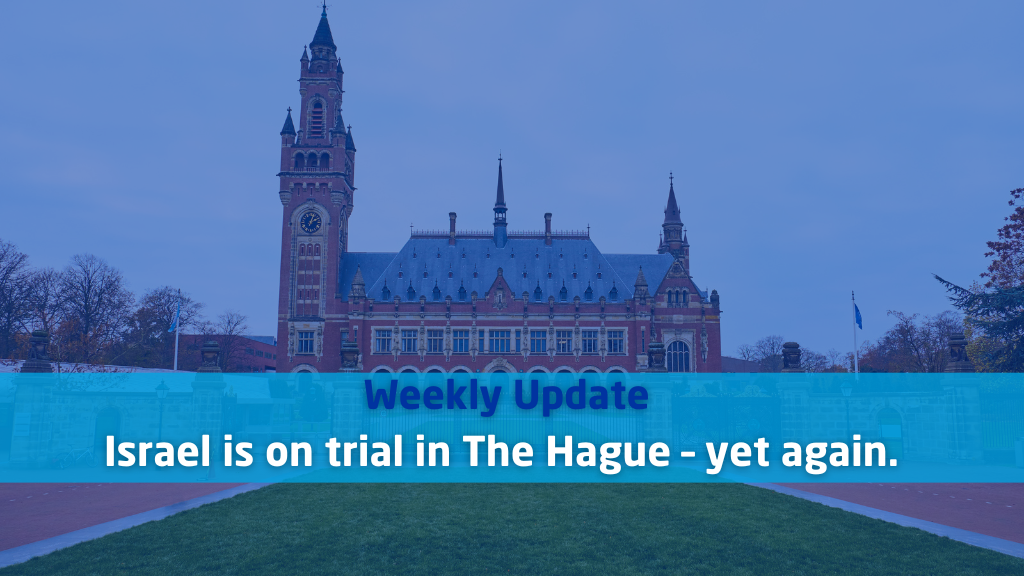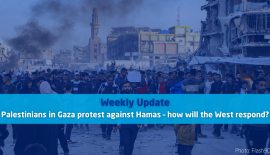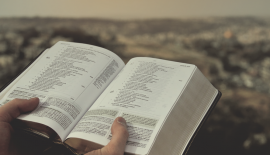Israel is on trial in The Hague – yet again.
There is an increasing number of legal cases against or about Israel, around the world. The legal system is being used to delegitimize the Jewish State of Israel and force it to allow the establishment of a Palestinian state. Some of Israel’s opponents want to see the elimination of the Jewish state, and replacement with an Arab-majority State of Palestine.
There are three cases currently before the International Court of Justice (ICJ) in The Hague.
Recently South Africa brought Israel to the ICJ, claiming that Israel is committing genocide of the Palestinians. The Court decided on 26th January that it is “plausible” that Israel is committing genocide (ie. is intending to destroy the Palestinian people, as a people).
The second case at the ICJ is the case brought by “The State of Palestine” against the USA for moving its embassy in Israel to Jerusalem (the Palestinians argue that Jerusalem is not part of Israel, and the USA is thus infringing the Vienna Convention on Diplomatic Relations 1961).
The third and perhaps most important case is about the status of the “occupied Palestinian territories”. Late December 2022, the UN General Assembly (UNGA) adopted a resolution asking the ICJ to give an “advisory opinion” about Israel’s “policies and practices” in the “occupied Palestinian territory” – ie. East Jerusalem, West Bank and Gaza.
About 55 countries and three international organizations are involved – the majority of them hostile towards the existence and security of the Jewish State of Israel.
Public hearings will be held next week – from Monday 19th to Monday 26th of February 2024 – at the Peace Palace in the Hague, the seat of the Court.
It’s the first time since the Wall Advisory Opinion in 2004 that the Court will possibly give an opinion about the legal aspects of the so-called “occupied Palestinian territory”.
Although the Court’s Advisory Opinion is not legally binding, an Opinion declaring Israel’s occupation to be illegal will be highly influential and potentially be used to compel Israel to withdraw unilaterally from Judea, Samaria, (East) Jerusalem and Gaza.
What is the ICJ being asked to give an opinion about?
On 30 December 2022, the General Assembly of the United Nations adopted resolution A/RES/77/247 in which, referring to Article 65 of the Statute of the Court, it requested the International Court of Justice to give an advisory opinion (Press Release of 9 February 2024). The relevant part of the resolution reads as follows:
“Request the International Court of Justice, pursuant to Article 65 of the Statute of the Court, to render an advisory opinion on the following questions, considering the rules and principles of international law, including the Charter of the United Nations, international humanitarian law, international human rights law, relevant resolutions of the Security Council, the General Assembly and the Human Rights Council, and the advisory opinion of the Court of 9 July 2004:
- What are the legal consequences arising from the ongoing violation by Israel of the right of the Palestinian people to self-determination, from its prolonged occupation, settlement and annexation of the Palestinian territory occupied since 1967, including measures aimed at altering the demographic composition, character and status of the Holy City of Jerusalem, and from its adoption of related discriminatory legislation and measures?
- How do the policies and practices of Israel referred to in paragraph 18 (a) above affect the legal status of the occupation, and what are the legal consequences that arise for all States and the United Nations from this status?”
Why is this important?
The Palestinian political leadership (ie. the PLO) is promoting and pushing this process. It is part of their well-known strategy (for the past decades) to utilize the international institutions in order to avoid negotiations and achieve a Palestinian State – without conditions or other security guarantees for Israel. The Palestinians have made it very clear that the State of Palestine will be based on Islamic sharia law, and that Jews will not be welcome there.
This is problematic because it ignores/overrides Israel’s legitimate security concerns, as well as Israel’s legitimate claims to sovereignty over the “occupied” territories. If a Palestinian state is established, who can guarantee that it will not be governed by Hamas and/or other Iranian proxies like Palestinian Islamic Jihad?
The UNGA resolution requesting the Court to give an opinion was adopted by a minority of UN member states (only 88 states voted in favor of the resolution, and many states opposed it).
So, it is a minority of States who are supporting this agenda. Most of the 55 countries and non-governmental organizations (Organisation of Islamic Cooperation, League of Arab States and African Union) who are actively participating in the legal proceedings in the Hague deny that the Jewish State of Israel is a legitimate UN member state.
It is expected that a small number of states (the UK, USA and some others) will argue that the Court should recognize and respect the negotiated peace process, and not issue an Opinion.
Who are the judges?
There are fifteen judges, each from a different country. Although they do not “represent” their countries, they are in many cases likely to follow the ideological/political approach of their home government.
The recently appointed Lebanese President of the Court (HE Judge Nawaf Salam) has previously published statements very critical of Israel and demanding the “end of the occupation”. He supports the recognition of Palestine as a state and its membership in the UN.
On the other hand, the Ugandan Judge (HE Julia Sebutinde) has recently been appointed Vice-President of the ICJ. In the “Genocide” case she stated that Israel is not committing genocide because it does not have the intention to eliminate the Palestinians as a people. She concluded –
“In my respectful opinion the dispute between the State of Israel and the people of Palestine is essentially and historically a political one, calling for a diplomatic or negotiated settlement, and for the implementation in good faith of all relevant Security Council resolutions by all parties concerned, with a view to finding a permanent solution whereby the Israeli and Palestinian peoples can peacefully coexist.”
What are the “legal consequences” that can be recognized in the Court’s opinion?
It is impossible to predict what the Court will decide. The ICJ first has to decide whether it has “jurisdiction” in this case, and whether it should exercise its “discretion” not to issue an Advisory Opinion.
A compromise decision of some sort is most likely. It is conceivable that the Court could decide that the consequences of Israel’s “policies and practices” are that the occupation is illegal. But it is also possible that the Court will decide not to issue an Opinion on the question asked by the UNGA.
What can we do?
It is very important that the church is aware of what is happening and prays about this.
- Be informed – follow updates at thinc-israel.org
- Pray that truth and justice will be achieved in The Hague.
- Pray that the ICJ will not make a decision that will undermine Israel’s security or become an obstacle to true peace between Jews and Arabs in the land.
- Pray that the city of Jerusalem will be protected and that it will not be divided.
- Pray for all in the land – Jews, Muslims, Christians and others.
- Pray for the Peace of Jerusalem.
The Editorial team Israel & Christians Today
This Weekly Update was produced in collaboration with The Hague Initiative for International Cooperation (thinc.)
ICJ – Legal Consequences arising from the Policies and Practices of Israel in the Occupied Palestinian Territory, including East Jerusalem
Read all of the Court’s documents here.
Lebanese, anti-Israel judge Nawaf Salam elected new president of ICJ
The new judge has previously claimed that critics of Israel are labeled antisemites “to intimidate and discredit them.”
> Read more..
Preparing for the Next International Court of Justice Debacle
The glaring problem with this issue is that there is no such entity as the “Palestinian territories.” The term “Palestinian territories” is an invented term used to define areas allocated by the international community to the Jewish state, which were then illegally invaded by Egypt and the Hashemite Kingdom of Jordan. Any discussion anchored on this false terminology should immediately be ignored and scorned.
> Read more..
Watch the thinc. Webinar : “Israel on trial” at the International court of Justice: The genocide and Advisory Opinion cases
It is important to note that under international law, the following can be stated:
- Occupation of territory is not illegal, in fact it is permissible under The Hague Regulations of 1907 and Fourth Geneva Convention.
- The mere duration of the occupation does not render it illegal.
- Jerusalem has never been “Palestinian” territory. Israel’s claim to West Jerusalem is solid and Israel retains a superior claim to East Jerusalem.
- The only “legal consequences for states and for the UN” should be insisting the Arabs comply with Resolution 242 by ceasing belligerency toward Israel and recognizing Israel’s right to live in peace with secure borders free from threats or acts of force.
“In those days and at that time, when I restore the fortunes of Judah and Jerusalem,
2 I will gather all nations and bring them down to the Valley of Jehoshaphat.
There I will put them on trial for what they did to my inheritance, my people Israel, because they scattered my people among the nations and divided up my land.
3 They cast lots for my people and traded boys for prostitutes ; they sold girls for wine to drink.
4 “Now what have you against me, Tyre and Sidon and all you regions of Philistia ? Are you repaying me for something I have done ? If you are paying me back, I will swiftly and speedily return on your own heads what you have done.
5 For you took my silver and my gold and carried off my finest treasures to your temples.
6 You sold the people of Judah and Jerusalem to the Greeks, that you might send them far from their homeland.
7 “See, I am going to rouse them out of the places to which you sold them, and I will return on your own heads what you have done.
8 I will sell your sons and daughters to the people of Judah, and they will sell them to the Sabeans, a nation far away.” The Lord has spoken.
9 Proclaim this among the nations: Prepare for war! Rouse the warriors! Let all the fighting men draw near and attack.
10 Beat your plowshares into swords and your pruning hooks into spears. Let the weakling say, “I am strong!”
11 Come quickly, all you nations from every side, and assemble there. Bring down your warriors, Lord!
12 “Let the nations be roused; let them advance into the Valley of Jehoshaphat,
for there I will sit to judge all the nations on every side.
13 Swing the sickle, for the harvest is ripe. Come, trample the grapes, for the winepress is full and the vats overflow—so great is their wickedness!”
14 Multitudes, multitudes in the valley of decision! For the day of the Lord is near in the valley of decision.
15 The sun and moon will be darkened, and the stars no longer shine.
16 The Lord will roar from Zion and thunder from Jerusalem; the earth and the heavens will tremble. But the Lord will be a refuge for his people, a stronghold for the people of Israel.





